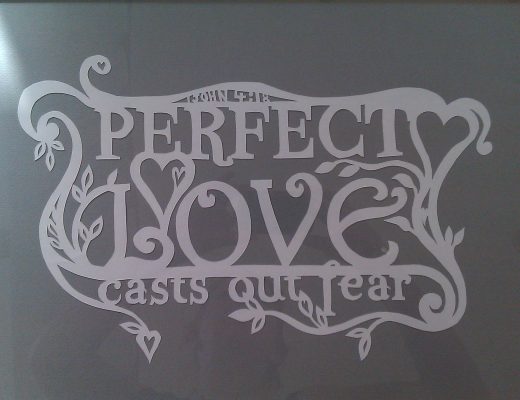Final part of a series on the Nicene Creed. Readings: Matthew 28:16-20, Ephesians 4:1-6
Today we come to the final part of the Nicene Creed. We’ve looked at the Father, Son and Holy Spirit and now we finish with this sort of ‘and also…’ section. In fact while the rest of the creed has been quite well researched and written about, there is much less info on this final section and how in originated. It is likely these points were not contentious but already widely believed, perhaps there was some source material already out there that was tacked on here.
We heard from Sylvia how there was lots of disagreements putting this creed together, the core of what was at stake was really about salvation and how we received salvation and through whom? This final section reiterates that – the focus of our salvation is within the church – the one holy catholic and apostolic Church and it happens through baptism and leads us to the life ever after – eternity.
Early Christians made quite grand claims about the church for example that the church was created before the sun and the moon, or: according to one early 2nd century letter: the way Christians relate to the world is like that of a body to the soul ie: the church is the soul of the world. Honestly I’m not sure how that idea goes down in 21st UK!
But lets look at each line…
So, we believe in one holy Catholic and Apostolic Church
One and Holy come from from New Testament language and catholic and Apostolic from themes of the early church. These 4 words are traditionally called the four marks of the church or as some theologians say, ideals for which the church should strive. One, Holy, catholic and apostolic.
One –
Gives us a sense of unity as Rob mentioned a few weeks ago. In Gal 3:28 Pauls says:
There is no longer Jew or Greek, there is no longer slave or free, there is no longer male and female; for all of you are one in Christ Jesus.
Or as we heard in Ephesians 4:5-6
There is one body and one Spirit, just as you were called to the one hope of your calling, one Lord, one faith, one baptism, one God and Father of all, who is above all and through all and in all.
We know from reading Paul’s letters things were not always this simple but that is proabbly why he reiterates it – it’s an aim, a hope, here are the things we can be united in… We are ONE.
One, Holy
We are a holy church. The word holy comes from the Hebrew quodesh, meaning set apart. Church, ekklesia in Greek, means gathering, ie: the people. So that means we are holy – which if I’m honest feels like a challenge doesn’t it!? Do you feel holy?
It is likely this idea came from the early church in that the early Christians faced a lot of persecution. Some denied their faith as a result. But then when a change of emperor or leader came who was more positive to Christianity these people would then want to come back to the church. But then those who had stuck it out argued that churches where ‘sinners’ Ie those who had denied their faith) had been allowed back in were no longer holy.
Which begs the question are we holy because of our faith – do we make the church holy; or are we holy because we belong to the church? something to ponder…
Even Jesus taught that the church is a mixture of people – In Matt 13 we read the parable of the weeds among the wheat. God will have a good sort out at the time of judgement.
What the Bible says is that God alone is holy (Rev 4). And God sets things apart to make them holy such as the Sabbath, so in that sense the church (us) is set apart for worship to God. It is our relationship to God that makes us holy.
One, holy and catholic
The word ‘catholic’ doesn’t appear in the New Testament, let alone as a description of the church, but it is the idea of a universal church, which was present from the start. It literally means broad, or wide, or inclusive. You can see this specifically as we heard in our gospel reading, Jesus telling his disciples, v19: go therefore and make disciples of all nations…
Although that verse has been seen as problematic in relation to colonialism, the point is the Christian faith is for all – from all nations – we are a broad church.
In fact the first person to actually use the term Catholic was Ignatius of Antioch in the early 100s. who used to talk about people being in communion with their bishop and with one another.
And then:
Apostolic
the church is Apostolic because it’s founded upon, the apostles, see Eph 2:19-20
So then you are no longer strangers and aliens, but you are citizens with the saints and also members of the household of God, built upon the foundation of the apostles and prophets, with Christ Jesus himself as the cornerstone. In him the whole structure is joined together and grows into a holy temple in the Lord; in whom you also are built together spiritually into a dwelling-place for God.
Jesus church was founded on the original 12 disciples or apostles, of course Judas was out and Matthias came in and later Paul and Barnabas are both talked of as being apostles in scripture. Apostle simply means one who is sent, and it is because they went out as we heard in Matthew, to share the gospel and that is how the church grew.
We know that Jesus said to Peter, you are the rock on which I will build my church and became the first bishop.
This is all known as apostolic succession, Peter as the first bishop ordained other bishops and clergy, they made others and so on down the line and the same with the message of Christ.
This follows Jesus’ example as he passed on his authority to the disciples in the great commission that we heard, and in John 20 we read:
When he had said this, he breathed on them and said to them, ‘Receive the Holy Spirit. If you forgive the sins of any, they are forgiven them; if you retain the sins of any, they are retained.’
And in Matt 16:19
I will give you the keys of the kingdom of heaven, and whatever you bind on earth will be bound in heaven, and whatever you loose on earth will be loosed in heaven.’
Then we move on:
We acknowledge one baptism for the forgiveness of sins
Baptism and forgiveness
The Nicene Creed uses the word ‘one’ four times: one God, one Lord at the start, and then in this end section one church and one baptism..
This might be an echo of Ephesians 4 as we read –
There is one body and one Spirit, just as you were called to one hope when you were called; one Lord, one faith, one baptism; one God and Father of all, who is over all and through all and in all.
Ephesians 4: 4-6
One reason for the use in relation to baptism is because it is not to be repeated. We believe that it is a sacrament in which the Holy Spirit is at work, it’s not like we say it didn’t work the first time we need to do it again – regardless of when or how it happened we believe that God is at work through it.
In the early church there were some questions around the validity of the minister doing baptism and so in some places there was an argument for being re baptised by a true minister.
But Pope Stephen in the day argued that the worthiness of the minister did not affect the validity of the sacrament, because it is God that is at work. And John the Baptist said I baptise you with water for repentance but he who is coming after me is mightier than I he will baptise you with the Holy Spirit and with fire. Christ is at work in every baptism and nothing can take away from that. So there is only one baptism.
Baptism is linked with repentance as Peter says repent and be baptised everyone of you in the name of Jesus Christ for the forgiveness of your sins in Acts 2. So as we say in the creed:
We acknowledge one baptism for the forgiveness of sins
We believe that it is Jesus who forgives us – that is central to the message of the gospel. In Matthew 1 the Angel tells Joseph that he will call Mary’s child Jesus because he will save the people from their sins. It is his name and his identity not just what he does. In baptism we are symbolically cleansed of our sins going under the water and being washed clean.
And finally:
We look for the resurrection of the dead,and the life of the world to come.
The creed finishes with the idea of a new beginning – beyond death as modelled through the death and resurrection of Jesus. We look forward in hope to a life with God in eternity.
In John 11:25-26 Jesus says:
I am the resurrection and the life. Those who believe in me, even though they die, will live, and everyone who lives and believes in me will never die.
This is eternal life. In this way we are linked also to the beginning of time, and links back to the start of the Creed in the God who creates, who recreates in us and for us a new kingdom.
We believe in one God, the Father, the almighty, maker of heaven and earth, of all that is, seen and unseen.
So we have come to the end of the Creed. One small declaration, a piece of prose but look at how much we decare when we say it together. I hope the last few weeks has given you a fuller understanding of what we are saying.
And we finish with
Amen
some info from this sermon comes from the book ‘The Nicene Creed’ by Jared Ortiz and Daniel A. Keating




No Comments